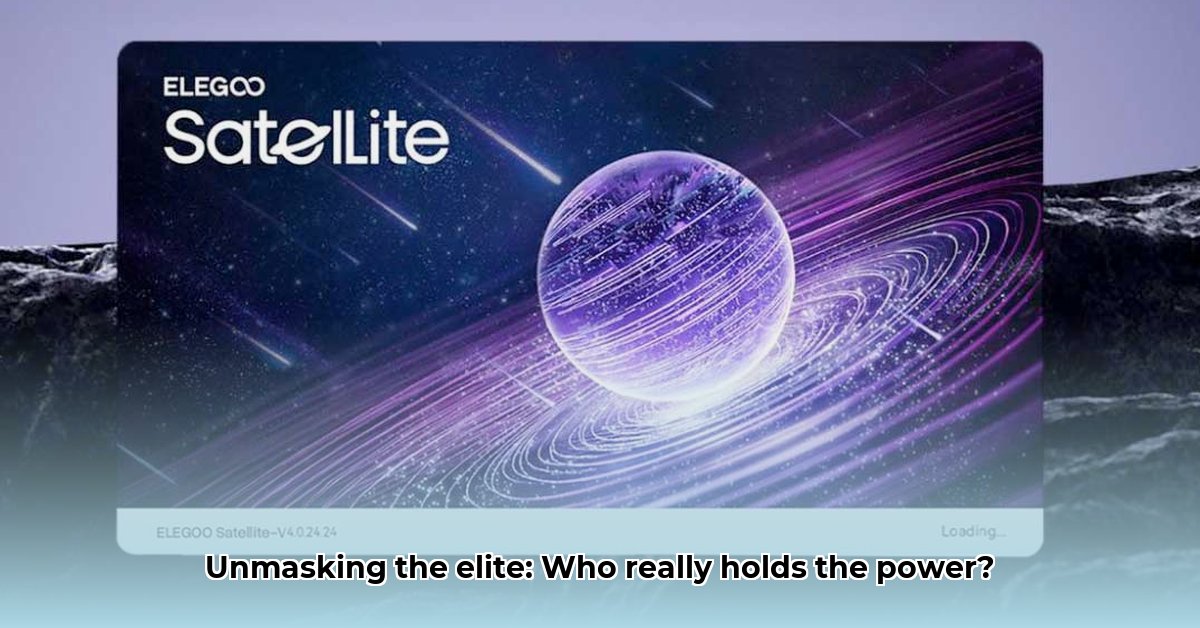
What does it truly mean to be "elite"? This seemingly simple word carries a surprising weight of complex meanings and connotations, shifting dramatically depending on context and historical period. From celebrating exceptional achievement to signifying privilege and inequality, the term "elite" demands careful consideration. This article explores the multifaceted nature of "elite," examining its evolution, power dynamics, and contemporary usage.
The Shifting Sands of "Elite": A Historical Perspective
The concept of an "elite" has undergone a significant transformation throughout history. In ancient societies, elite status was often determined by birthright and inherited wealth. However, in modern times, the definition has broadened considerably. While inherited wealth remains a factor, exceptional professional success, groundbreaking innovation, and even substantial social media influence can all contribute to an individual or group being labeled "elite." This evolution reflects the changing landscapes of power and influence in our globally interconnected world. How has this transformation affected our understanding of the term?
It's instructive to contrast the term "elite" with a hypothetical word, "eloite" (a word not actually in use). While "elite" carries connotations of exclusivity and even unfairness, "eloite," if we were to imagine it as a culinary term, could signify something readily available and desirable to all. This imagined contrast reveals how subtle linguistic shifts can dramatically alter meaning and perception.
Power and the Implicit Meaning of "Elite"
Discussions of "elite" are inextricably linked to power dynamics. Who holds power? How is it wielded? And how does this power imbalance affect society at large? These are fundamental questions that lie at the heart of debates concerning social and economic inequality. The very use of the term "elite" often implies the existence of a less powerful majority, underscoring the inherent tensions and inequalities inherent within its usage. Does this inherent tension explain the word's ambivalence?
Navigating the Spectrum: Positive and Negative Connotations
It's crucial to acknowledge the spectrum inherent in the meaning of "elite." At one end, "elite" can signify exceptional achievement and mastery, as seen in descriptions like "elite athletes" or "elite scientists." This carries a positive connotation, reflecting admiration for skill and dedication. However, at the opposite end of the spectrum, "elite" can denote exclusivity, privilege, and even corruption. Terms like "economic elites" often evoke concerns about wealth disparity and unfair advantages. This inherent ambiguity necessitates careful attention to the context in which the term is employed.
Case Studies: "Elite" in Different Contexts
The meaning of "elite" varies considerably depending on the context. "Elite universities," for instance, typically connote high academic standards and prestige. However, "economic elites" often provoke critique regarding wealth inequality and the concentration of power. This highlights the contextual nature of the word and the importance of understanding the nuances associated with its usage in specific situations. Can we reconcile these opposing viewpoints?
Critical Analysis: An Ongoing Conversation
Understanding the multifaceted meaning and evolving connotations of "elite" requires careful and critical examination. Are we actively questioning our use of this word and its implications? By analyzing how "elite" is employed and the assumptions embedded within its usage, we can begin to unravel the power structures that shape our world. This is an ongoing conversation that demands sustained engagement and intellectual curiosity. What proactive steps can we take to foster a more equitable understanding?
Three Pivotal Points:
- The meaning of "elite" is context-dependent and has evolved significantly over time.
- The term is intrinsically linked to power dynamics and often highlights social and economic inequalities.
- Nuance is vital when interpreting "elite," acknowledging both its positive and negative connotations.
Expert Opinion: "[The evolving definition of 'elite'] is significantly impacted by technological advancements and globalization," states Dr. Anya Sharma, Professor of Sociology at the University of California, Berkeley. "Ongoing research continues to explore the complex interplay between economic, social, and political elites and its consequences on societal structures and inequalities."
How to Analyze the Evolving Connotations of "Elite"
Analyzing the evolving connotations of "elite" demands a multifaceted approach that goes beyond simple dictionary definitions. It involves a deep dive into the historical trajectory of the word, identifying its contextual usage, and considering the societal forces shaping its perception.
Historical Contextualization: Trace the word's usage through history, noting shifts in meaning over time.
Contextual Analysis: Examine the context in which "elite" is used. The connotation of "elite athletes" differs dramatically from "political elites," for instance.
Linguistic Analysis: Observe the words accompanying "elite." Are they positive (e.g., skilled, exceptional) or negative (e.g., privileged, corrupt)?
Audience Consideration: Who is using the term, and for whom? Understanding the speaker's perspective is critical.
Socio-Political Context: Recognize that societal views on wealth, power, and inequality heavily influence how "elite" is interpreted.
By using these analytical strategies, we move beyond surface-level definitions to expose the deeper meaning and layered implications associated with this complex word.